China sees its reliance on Australian iron ore as ‘strategic weakness’
China has struggled in its efforts to hurt Australia’s most valuable export – but Beijing is determined to end this “strategic weakness”.
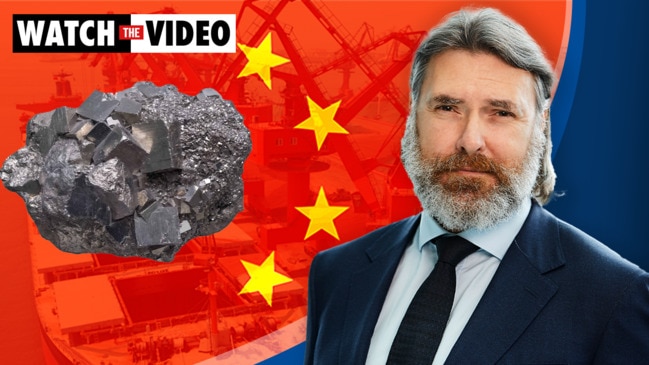
China likely sees its continued reliance on Australian iron ore as a “strategic weakness” but does not have any viable alternatives for now, an expert says.
While Beijing’s trade sanctions on Australian products including beef, wine and barley have hurt exporters, surging iron ore prices have more than made up the difference – highlighting the key flaw in China’s plan to punish Canberra amid worsening diplomatic relations.
Iron ore, Australia’s number one export and a critical ingredient in steelmaking, rose again on Monday to $US220 a tonne, amid ongoing supply issues and record steel production in China driving demand.
“They probably see that as a strategic weakness,” Dinny McMahon, author of China’s Great Wall of Debt: Shadow Banks, Ghost Cities, Massive Loans and the End of the Chinese Miracle, told the ABC’s China, If You’re Listening podcast.
RELATED: China’s plan to hurt Aus hits big new snag
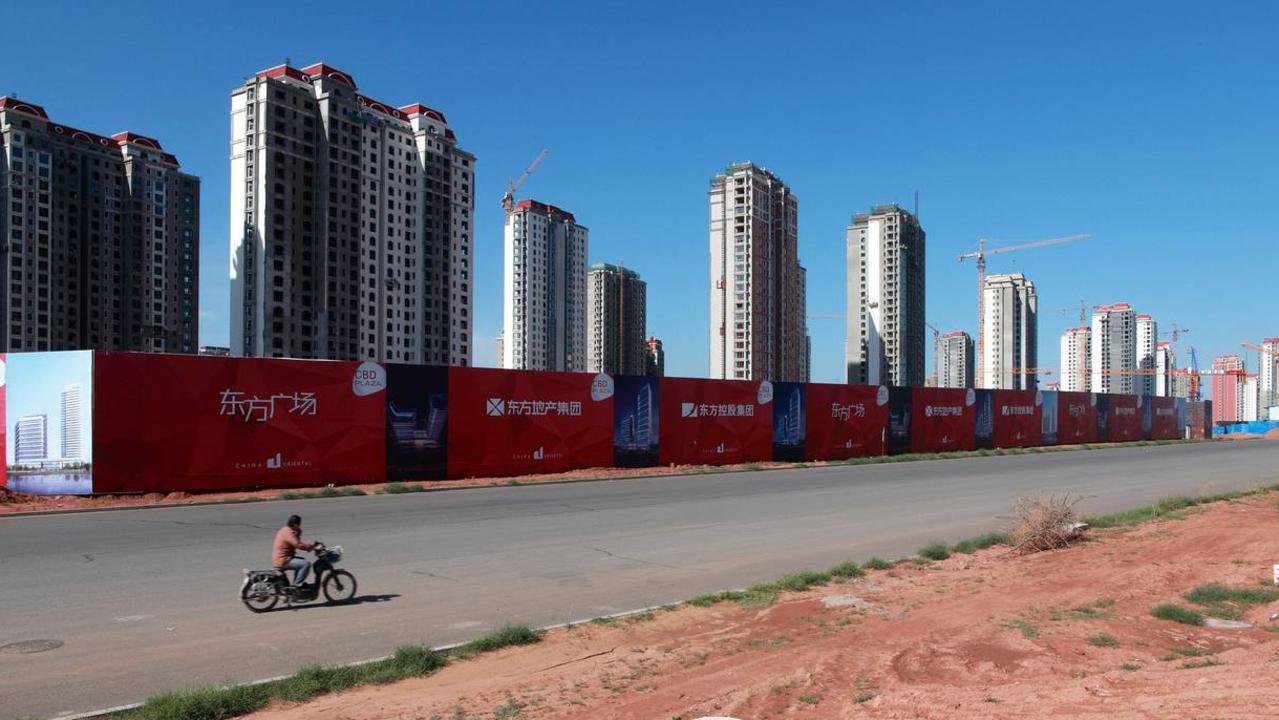
“They can’t see their program of sanctions through to its logical conclusion, because they’re so dependent on certain resources from Australia, they’re certainly aware of the weakness of their position. And ultimately, that’s not a position they want to be in, in the long term.”
Against all expectations, the total value of Australian exports to China rose in the first quarter of 2021, largely due to the high iron ore price.
In the first five months of the year China snapped up 444.9 million tonnes. Over 2020, China bought 81 per cent of all the iron ore Australia shipped overseas. The export brings in about $136 billion to Australia’s economy a year.
Last week, Chinese state media came out with more tough talk and threatened to send Australia into a “wintry period” by finding alternative sources of iron ore, in a move that would wipe more than $81 billion from the economy.
RELATED: China’s new $81 billion blow to Australia
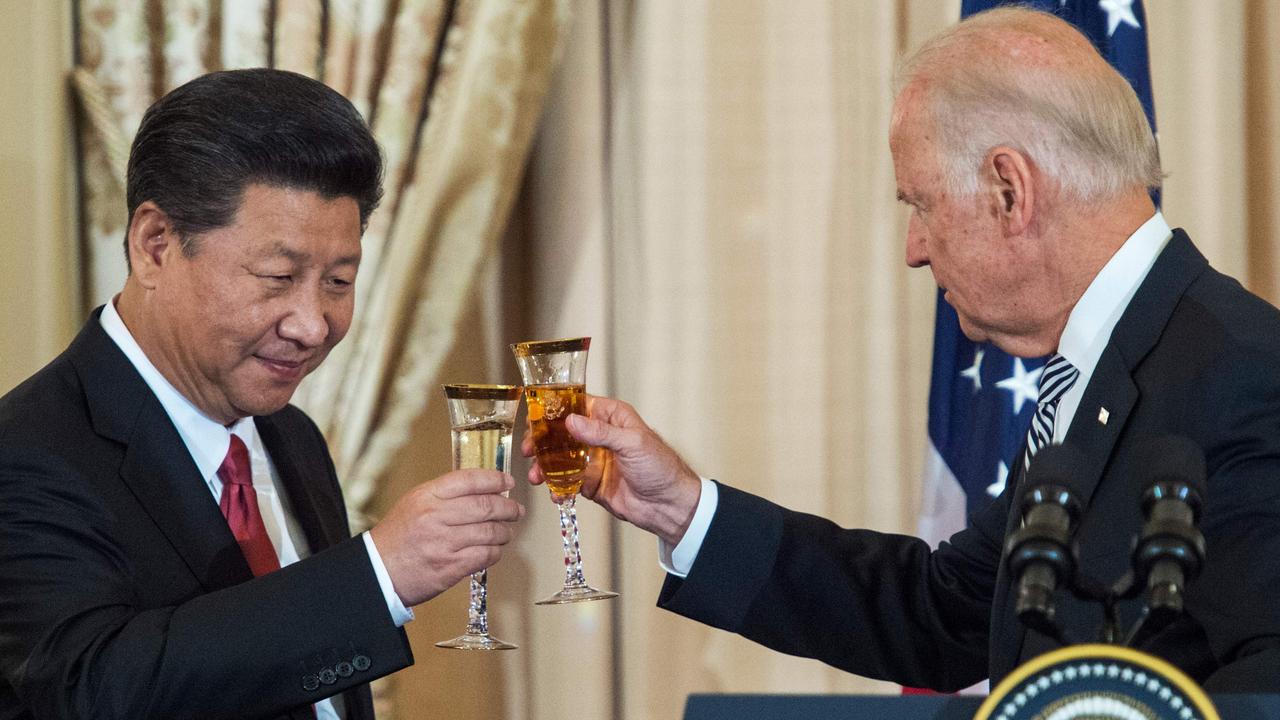
China wants to ‘cut ties completely’
The Chinese Communist Party now claims that by using the latest technology in scrap steel recycling, it can cut its reliance on Australian iron ore exports by half in the next decade.
Its other options for sourcing iron ore are Brazil – but safety disasters there have drastically reduced production – and the impoverished African nation of Guinea, where total lack of infrastructure mean ramping up any significant output would take several years.
McMahon who in 2018 wrote about China’s vast, steel-fuelled “ghost cities” and the potential economic collapse, says his views have changed as a result of a rapid strategic shift under President Xi Jinping.
“I think what they’ve done over the last few years in the financial system suggests that the potential for a major crisis or a blow-up isn’t that prominent anymore,” he told the ABC.
“Xi Jinping has really been developing new visions of what growth should look like in China. But the point of what China is trying to do in terms of reforming its financial system, reforming its capital markets, reforming its economy, investing so much in R&D, the whole vision behind that is to become an economy that is less dependent on iron ore.”
RELATED: China’s ‘frustrating reality’ cruelly exposed
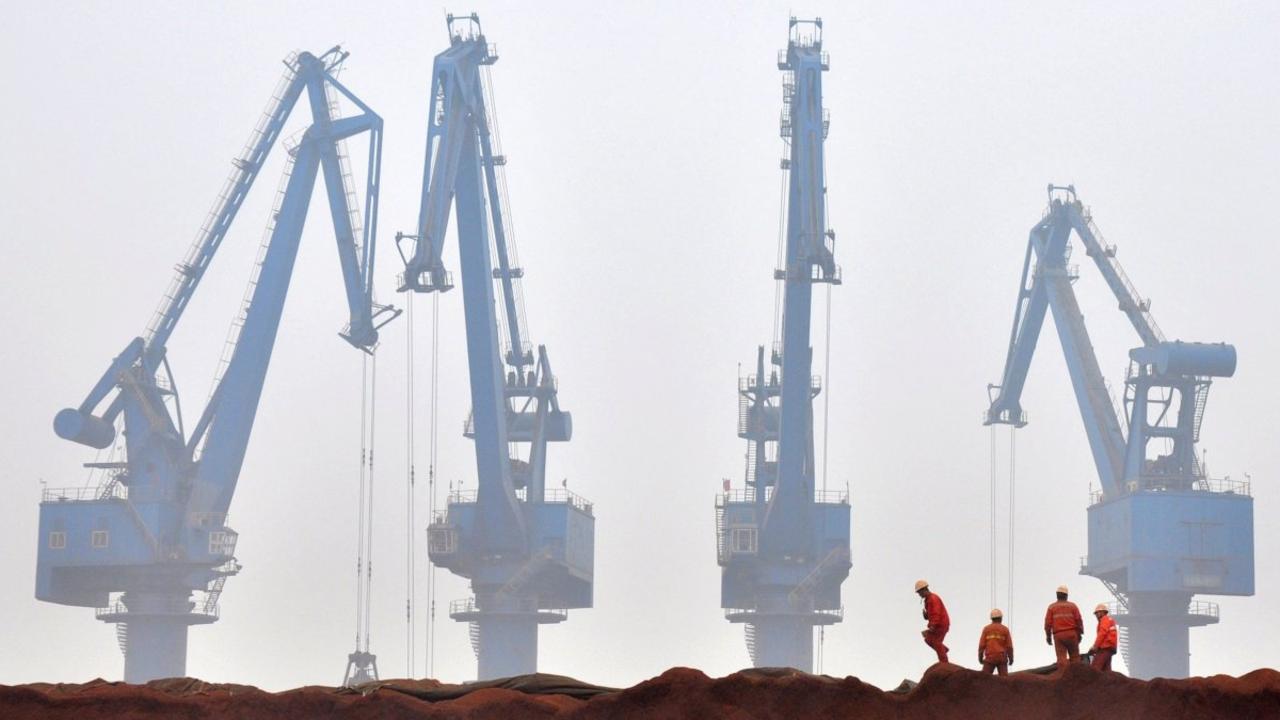
China, If You’re Listening host Matt Bevan noted that if China was successful in that goal, or managed to find an alternative source of iron ore, “it would bring them close to the point where they could – if they wanted to – cut ties with Australia completely”.
“Which, as WA Premier Mark McGowan said, would be a big, big deal,” he said. “Not just for mining states like his, but for all of Australia.”
Cheng Hong, director of the Australian Studies Centre at East China Normal University, wrote in an opinion piece for the state-run Global Times outlet last week that Prime Minister Scott Morrison’s government was trying to “delude themselves and the Australian public”.
He downplayed the trade figures, blaming the “irrational” increase in iron ore prices.
“Turning a blind eye on the swingeing decline of the actual trade between the two countries, they take advantage of the present peak of the international large commodities’ prices for the time being, which has led to statistically temporary highs of the bilateral trade, trying to create a deceptive impression that the current diplomatic freeze does not affect trade activities at all,” he wrote.
“As a matter of fact, business owners of various industries can testify an unprecedented wintry cold in their trade with China. It is becoming untenable for the Australian politicians to continue to use this data as a fig leaf to misinform and defraud its business community.”
RELATED: China slapped down by incredible rise
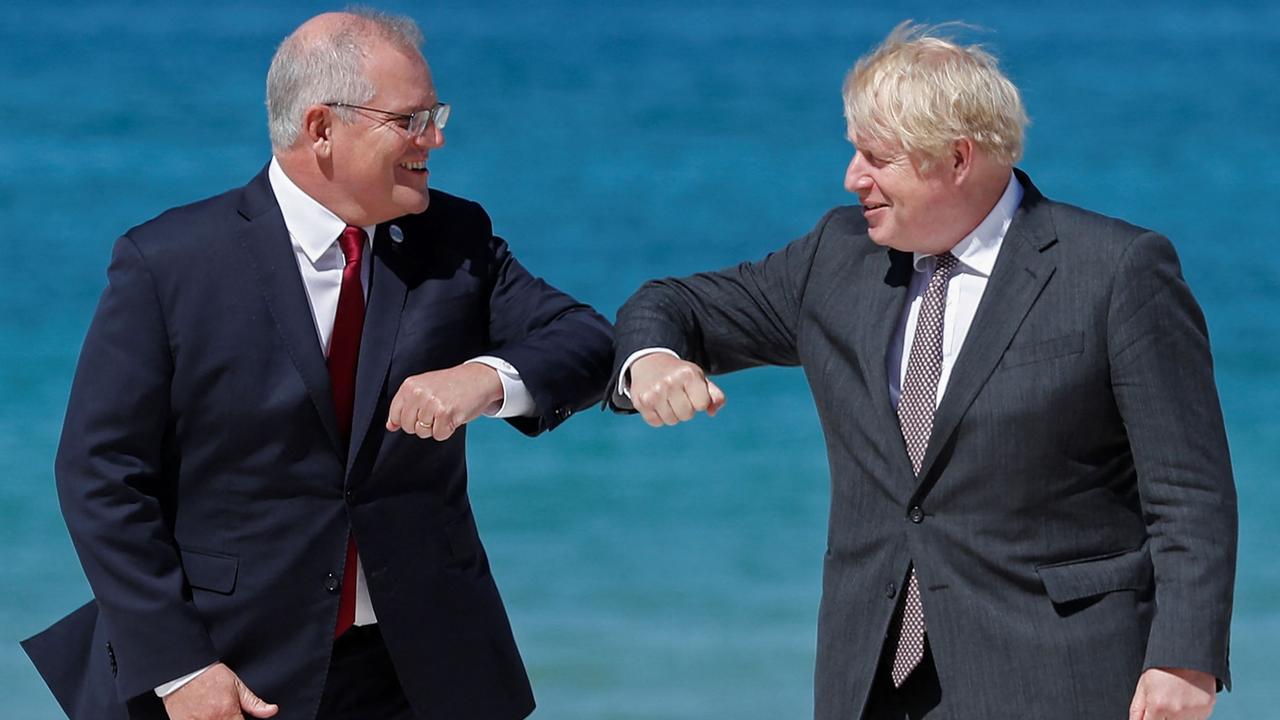
‘Pig Iron Scott should boycott China’
Economic commentator David Llewellyn-Smith, writing in MacroBusiness on Tuesday, likened the current situation to Australia exporting iron to Japan in 1938, earning Robert Menzies the nickname “Pig Iron Bob”.
“In the 1930s, when we last faced the paradox of supplying bullets to the very fascistic state that was coming south to destroy our way of life, we didn’t stop then either,” he wrote.
Llewellyn-Smith said despite Mr Morrison’s tough talk, he was unwilling to take the one drastic action that could make a difference – boycotting iron ore exports to China.
“The results would be instant,” he wrote.
“The Chinese economy would be structurally shocked to its knees … An instant debt crisis would sweep the Chinese financial system as its bizarre daisy chain of corruption froze … It’s possible that it would trigger a political revolution in China.”
Australia would suffer, too, with the dollar crashing to 40 cents “if not lower”. China would counter-boycott all exports to Australia, causing massive short-term shortages particularly in electronics.
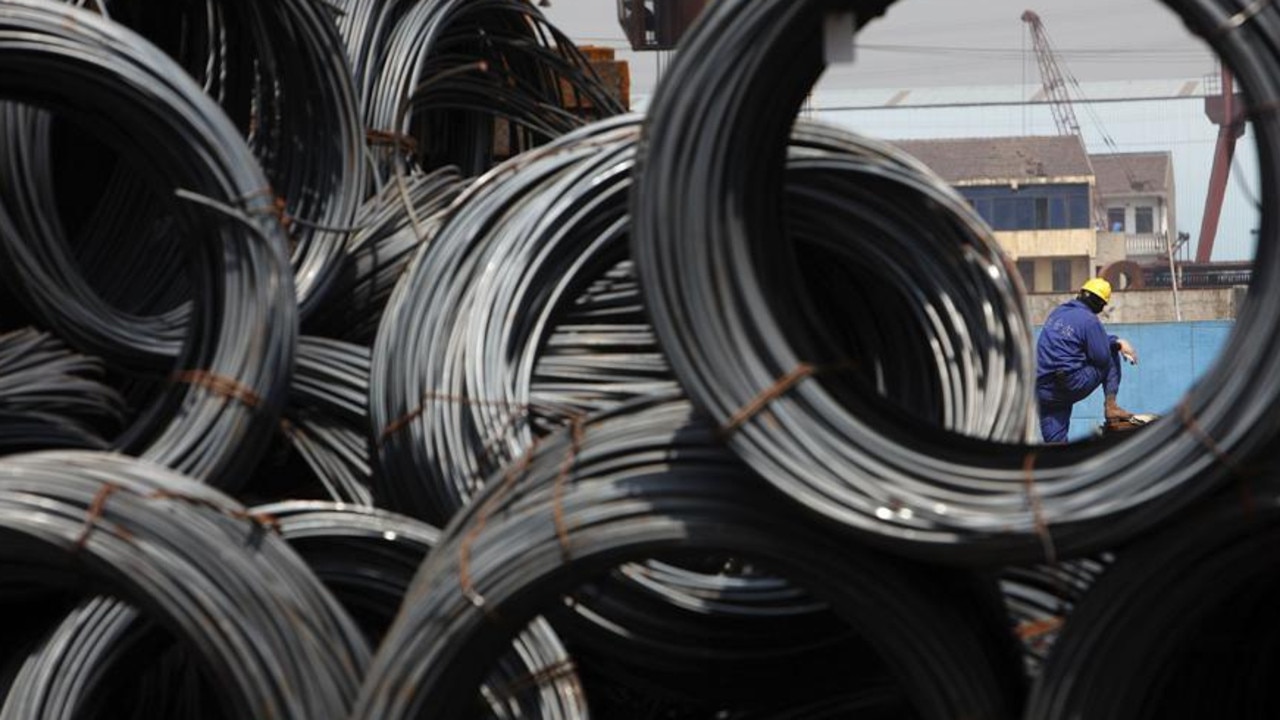
“But, you know what? We’d be OK,” he wrote.
“The very large initial hit to national income would quickly be offset by the halving currency. We’d quickly source new supply chains or rebuild our own production.”
The move would trigger a global political and financial crisis, he argued, and would potentially bring forward China’s planned takeover of Taiwan.
“From a realist perspective, this would be a good outcome,” he said. “Forcing China to move before it is ready would bring forward its ultimate containment.”
The problem, he said, was that such drastic action was difficult in liberal democracies.
“This is great strength in peacetime as it preserves openness and prosperity,” he wrote. “But it becomes a liability when, every so often, an autocratic regime rises to threaten it.”
The other big issue, Llewellyn-Smith said, is “we want the cash”.
“Australia can survive cutting all China trade relatively well, but the iron ore interests that run the joint can’t,” he wrote.
“That’s what you might call political economy inertia. Things can’t change when so many interests are embedded in the architecture of national management. Bar one, there is nobody more in the pocket of those interests than ‘Pig Iron Scott’ Morrison.”
– with Benjamin Graham




